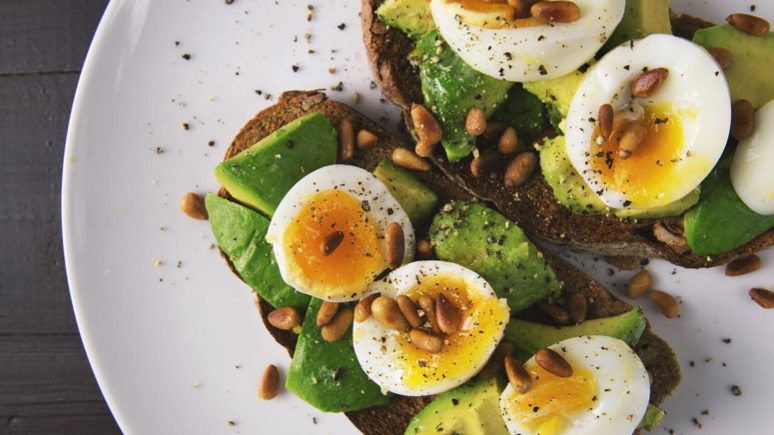Introduction
Nowadays, many people entirely or partially refuse to consume animal-based products in their diet in order to improve their health or due to environmental or ethical reasons. Various diets include vegetarianism on some level. One of such diets is lacto-ovo vegetarianism, also known as ovo-lacto vegetarianism.
Lacto-ovo-vegetarian diet includes predominantly plant-based food intake, excluding fish, meat, and poultry, but including eggs and dairy products. In the name, the “ovo” part refers to eggs, and the “lacto” part refers to dairy.
This diet will benefit people with heart disease, high blood pressure, type 2 diabetes, and people at risk of gallstones or certain types of cancer.
Key points
The lacto-ovo-vegetarian diet is based on eating vegetables and fruits, grains, seeds, nuts, legumes (such as lentils, peas, and dried beans), eggs, and dairy products. This nutrition plan excludes meat, fish, poultry, as well as products containing these foods. A lacto-ovo-vegetarian diet requires some extra planning to meet all the body’s needs in terms of micronutrients and macronutrients. Since it is harder to get enough protein following any kind of vegetarian diet, you should plan ahead what you can eat to receive enough protein without consuming meat products.
There are many plant foods available that can provide the proteins needed for good health. In addition, plant-based eating plans are becoming increasingly popular, so there are plenty of vegetarian-friendly foods available. The problem is that many foods marketed for lacto-ovo vegetarians are prepackaged and highly processed. It means that such foods may be high in salt, added sugar, unhealthy fats and oils, and calories. Therefore, you should look through the nutrition label and ingredients listed on the package to make sure that these foods are healthy and right for you.
Contraindications
Pregnant and breastfeeding women, as well as children under age 5, should consult a registered dietitian. This is because such people have an increased need for nutrients uptake. A well-planned lacto-ovo-vegetarian diet can meet all of these needs.
Pregnant or breastfeeding women should follow the food guide and dietitian’s recommendations, selecting healthy foods. They also should pay special attention to good quality sources of vitamin B-12 and omega-3 fatty acids. If you are pregnant, consult your doctor about prenatal vitamins that include iron and vitamin B12.
How to avoid possible nutritional deficiencies
Just like with other diets, restrictions in your eating plan may result in challenges with getting all the nutrients your body needs. Lacto-ovo-vegetarian diet poses a risk for omega-3 fatty acids, vitamin B-12, vitamin D, iron, calcium, zinc, and protein deficiency. Therefore, you should pay attention to the listed nutrients to ensure that your diet includes all the vitamins and minerals your body needs.
- Omega-3 fatty acids: soy oil, canola oil, soybeans, flaxseeds, omega-3 eggs, tofu, fortified soy beverages, and walnuts.
- Vitamin B-12: eggs, dairy products, nutritional yeast, shitake mushroom, nori seaweed.
- Vitamin D: fortified soy milk, cereals and orange juice fortified with vitamin D, mushrooms, almond and rice milk fortified with vitamin D.
- Iron: legumes, quinoa, fortified pasta and cereals, blackstrap molasses, dark green vegetables (broccoli, spinach, bok choy, kale, etc.), prunes, apricots, and raisins.
- Calcium: soy foods, legumes (beans, peas, and lentils), almonds, seeds, seaweed, dark leafy greens, foods fortified in calcium (plant yogurts and certain types of cereals).
- Zinc: nuts, seeds, legumes, whole grains, tofu, tempeh, and dairy products.
- Proteins: legumes (including beans, peas, lentils), seeds, eggs, dairy products, nuts, soy, and whole grains (such as quinoa and buckwheat).
Additionally, you can take supplements to ensure you receive all essential vitamins and minerals.
Tips on improving your dieting experience
- Incorporate various vegetables and fruits into your diet. Adding fruits and vegetables to your meals will provide you with essential vitamins and minerals, as well as fiber.
- Consider whole-grain food. Whole grains are a good source of proteins, fiber, and zinc.
- Balance your nutrition. A well-balanced diet plan can help you meet all your body’s needs for nutrients.
- Consult with the dietitian. If you are not sure how to construct a balanced lacto-ovo-vegetarian nutrition plan, you should seek advice from a dietitian.
- Consume plant-based proteins. To meet your body’s needs in protein, you should include plant-based proteins in your diet. Various plant-based protein options are known, including tofu, lentils, chickpeas, nuts, quinoa, beans, seeds, edamame, etc.
Conclusions
Overall, the lacto-ovo-vegetarian diet is a healthy choice for those who want to refuse to consume animal-based foods. If well planned, this diet can provide all the nutrients your body needs and may reduce the risk of heart disease and diabetes, and provide other health benefits. However, certain groups of people should work with a registered dietitian to ensure they are getting enough nutrients from a lacto-ovo-vegetarian diet.














Leave a Reply
You must be logged in to post a comment.